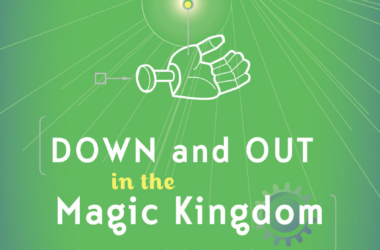Psych tests and profiles are a dime a dozen. Most famous is the Myers-Briggs personality types system1, but there are plenty of other attempts to sort human personalities into a set of buckets and then attach catchy labels to each type. In fact, every time I attend a management training course, I get introduced to another strategy for psychological partitioning so I can more effectively sort the members of my team.
CliftonStrengths—along with its companion website—doesn’t seem all too different on the surface. The system is backed by Gallup and is thus has some added credibility in business circles, but the approach is similar: an online personality quiz; a set of distinct “strengths” materializing from its evaluation; associated descriptions that, depending on how much they read like horoscopes, invite healthy skepticism. It’s not unreasonable to be wary, especially when the quiz upsells to more expensive packages and personal coaching classes.
Of course, I ended up ordering a couple dozen books for folks on my team at Affirm.
I first took this assessment a couple of years ago, when it was called StrengthsFinder 2.0. I contend that the former title is a better description of its purpose—the process is about identifying what you’re good at, and then doubling down and extending that advantage. With the added data point of a second test, what makes CliftonStrengths different—and worth doing—is:
- An extensive question set, 170+ questions, smartly timed at around 20 seconds per question.
- Questions which aren’t binary and aren’t as easily gamed or read between the lines, e.g., no “do you identify more as an introvert or extrovert?” gimmes.
- 34 strengths/types, again with no obvious binary complements2.
- Documentation with suggestions and action items on how to improve on your identified strengths.
The utility then comes from both correct identification of your traits, and then actionable suggestions for further improvement. On both counts, I found that CliftonStrengths does a good job; each identified theme is necessarily generic3, but posits enough specifics that resonate with my own principles and mental frameworks.
More importantly, their suggestions and potential action items form a quick checklist for longer-term goals and habits. I saved the profile from my first quiz back in 2008, and re-read its guidance every so often to reevaluate what does or does not apply. A tip around the “Intellection” strength—encouraging journaling and writing down thoughts—eventually became a daily journal and weekly blog for 5 and 7 years respectively.
None of this is to say that CliftonStrengths is some sort of magical mind-reading personality assessment program4. I’ve found that its culmination of accurate identification and simple instructions a good motivator to try out some of its suggestions, which has proven rewarding. If that combination resonates, then $20 is a cheap price to pay for incremental self-improvement.
Which has its own share of critics and skeptics, not to mention the lack of actual endorsement from psychologists.↩
Gallup banks on the power of combinatorials to insist that there are millions of unique ordered combinations from 34 items.↩
A common complaint with these assessments is that they read like horoscopes. My take is that it’s quite hard to be overly specialized when a single attribute still describes millions of people, so descriptions can still provide value if they can be argued against, i.e., that you can imagine somebody exhibiting the opposite behaviors.↩
In fact, you can probably guess at how the quiz’s questions contribute to a 34-dimensional matrix and its final evaluation a simple slicing of the top 5 weights.↩




